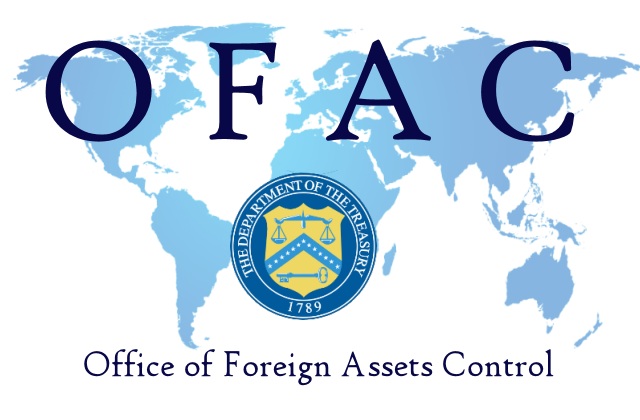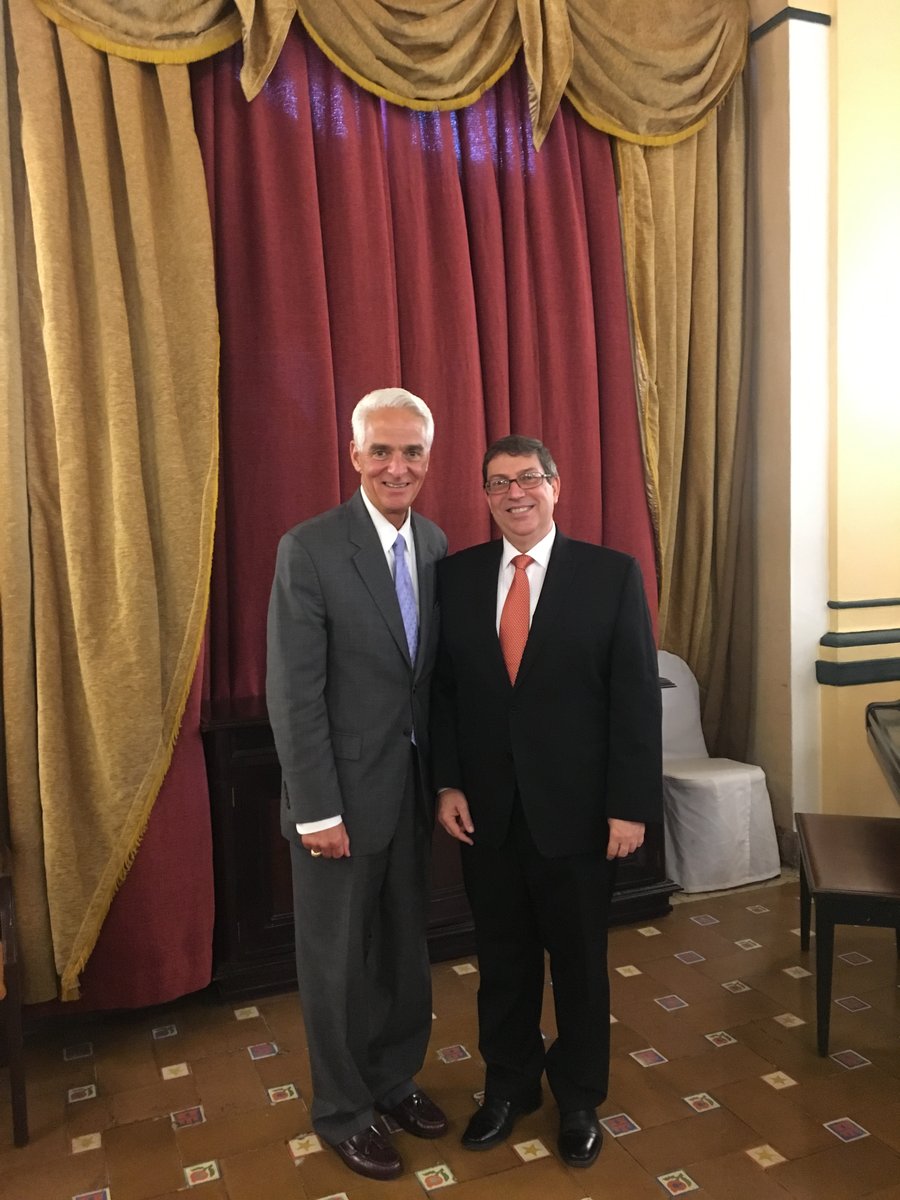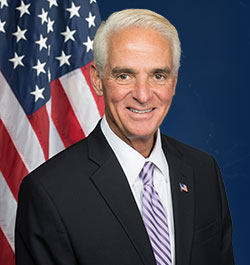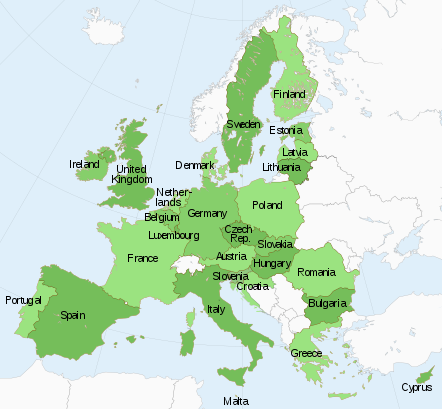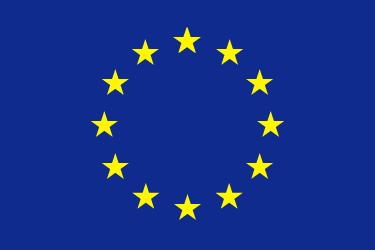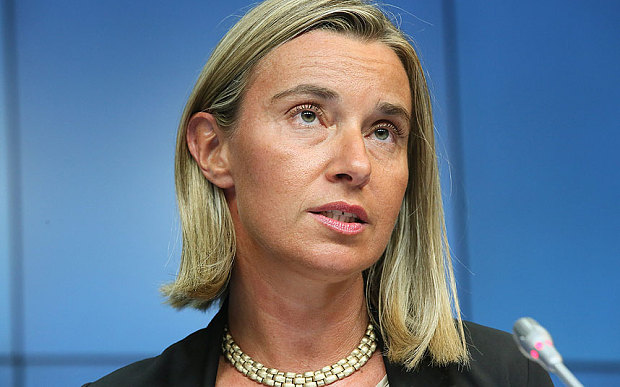Senior State Department Official
U.S. Policy Towards Cuba
Background
Press Briefing
April 17, 2019
Moderator: Good morning, and greetings to everyone from the U.S. Department of State Media Hub of the Americas in Miami, Florida. I am Lydia Barraza, the Director of the Miami Media Hub and the Spanish-language spokesperson. I would like to welcome all of our callers who have dialed in from the United States, Latin America, and Europe.
Today we are joined by a Senior State Department Official who is speaking to us from Washington, DC to talk about U.S. policy towards Cuba. We have received questions in advance from some participants and we’ll be asking those along with the live questions. This call will be on background. That means that any statement needs to be attributed to a Senior State Department Official.
With that, I will turn it over to our speaker.
Senior State Department Official: Thanks very much, Lydia, and thanks to everyone for joining us. I know I’ve had the opportunity to speak with some of you before, and I’m pleased to have the opportunity to do so again.
As you likely know, Secretary Pompeo just announced his historic decision not to suspend Title III of the LIBERTAD Act. This decision will become effective on May 2nd. So first I’ll outline briefly what it means not to suspend Title III and the rationale behind the decision, and then I’m happy to take any questions.
Some quick background, under Title III, Congress gave U.S. nationals with a claim to confiscated property in Cuba the right to file a lawsuit against the people or companies who were trafficking in that property. But for more than 22 years, U.S. Presidents or Secretaries of State have suspended American’s rights under Title III which Congress authorized when both necessary to U.S. national interests and necessary to expedite a transition to democracy in Cuba.
Now our decision on Title III is fundamentally related to the actions of the Cuban regime. After suspending Title III for more than 22 years in a row we still have not seen Cuba transition to democracy. In fact the opposite is true. Cuba shows no sign that it will achieve democracy in the near future as the repressive political situation in Cuba has persisted. And even under a new leader in Cuba, nothing has fundamentally changed. The recent illegitimate constitutional referendum on February 24th simply entrenched the one-party rule in Cuba, and of course the human rights situation in Cuba remains abysmal.
But not only has the situation in Cuba worsened, Cuba also actively undermines democracy in the region as a whole. We’ve seen it export dictatorship, export torture, export arbitrary detentions, and export the harassment and intimidation of dissidents and opposition factors. And in all of these actions Cuba continues to prop up the former Maduro regime which denies Venezuelans their right to self-determination.
So under the Trump administration U.S. policy towards Cuba will reflect reality. Twenty-two years of suspending Title III has failed to advance the goal set forth by the legislation in the first place. Secretary Pompeo’s decision today recognizes the truth of that failure and enacts Congress’ common sense policy to starve the Cuban regime of the wealth it needs to hold onto power while simultaneously supporting the people of Cuba.
So ending the suspension of Title III sends a strong signal against trafficking in these confiscated properties as well as opens a path for U.S. claimants whose property was confiscated by the Cuban regime to seek compensation.
I’d just close by saying that starting with NSPM5, this administration has made clear its intent on holding the Cuban regime accountable for repression on the island and maligned activity overseas, while at the same time supporting the Cuban people. And this administration will not allow those trafficking in confiscated property off the hook for their complicity in the regime’s malign behavior.
With that, I am happy to take any questions that you may have.
Moderator: Thank you, Senior State Department Official. We will now begin the question and answer portion of today’s call.
The first question will go to the line of Lucia Leal from Efe News.
Question: Hi. Good morning. Thanks for doing this.
You said in your earlier press conference that the vast majority of European companies investing in Cuba shouldn’t worry about this, but some experts say that 90 percent of the property that was nationalized in Cuba after the Revolution actually belongs to Cubans who left for the United States. So if that’s true, this could potentially affect investment in the entire island. Do you have any reason to believe that’s not true? And if so, what guarantees do European companies have? Thank you.
Senior State Department Official: Thanks very much for the question.
The purpose of the legislation as it was originally passed was to ensure that there was justice for those who had their property illegally confiscated by the Cuban regime. So of course any European company, any American company, any company around the world that traffics in property that was confiscated by the regime does have the possibility of being hit by this legislation.
So I wouldn’t be comfortable giving an assessment on how many companies that applies to, but the LIBERTAD Act also does include certain conditions and requirements to bring an action under Title III. So in that instance we advise potential plaintiffs to consult with legal counsel.
Moderator: The next question was received in advance from Isabel Espronceda from the Office of Cuban Broadcasting in Miami. The question is:
Question: European Union officials have warned Secretary of State Pompeo that they are planning to start a case against the U.S. at the World Trade Organization over this issue. How is the United States preparing to respond?
Senior State Department Official: Thanks for that question as well.
I would just start by stressing that our relationship with our partners in Europe is very critical to this administration. We’ve consulted with them numerous times. We’ve taken into account their considerations and their concerns. I think its fair to say, and we’ve said this earlier, that we all agree on the broader strategy to promote democracy and human rights in Cuba. There is some disagreement on the tactics to get there.
And in terms of the next steps and whether the Europeans would be taking this to the World Trade Organization, I would just defer to them on their response and what their actions will be, and just simply reiterate that we here are implementing the laws passed by Congress.
Moderator: The following question comes from the question queue and the line of Andrei Sitov from TASS News Agency.
Question: -- you are working for the Cuban crisis, and [inaudible] what is your message to Moscow at this point?
Senior State Department Official: Sorry, what is the message to whom?
Question: What is the message to Russia, to Moscow? Because as you know, Moscow has longstanding relationship, partnership with Cuba.
Senior State Department Official: Thank you for that question.
With this legislation, with the implementation of this legislation we are not targeting any specific countries or specific companies. The Secretary has made very clear that this is a decision not to waive, that has no exceptions. So there is no direct targeting reflected here.
And in terms of the broader message that we’re trying to communicate writ large, it is the administration’s continued focus on holding the Cuban regime accountable for human rights abuses, and again, simultaneously supporting the people of Cuba in their fight for democracy.
Moderator: The following question was submitted in advance from Norah Gamez from the Miami Herald and [Inaudible] Herald. The question is:
Question: American companies on the island have been operating under a Treasury license. Is that enough to protect them from lawsuits under Title III?
Senior State Department Official: Once again, there are no exceptions to the implementation of Title III.
Moderator: The next question comes from the line of Danieo Benites from Channel 41, America TV.
Question: Good morning, thanks for the opportunity.
A few minutes ago the Secretary said Cuba is still [inaudible] . At this point the administration are considering putting back the [inaudible]. Is the [inaudible] a sponsor of [inaudible]?
Senior State Department Official: As was stated in today’s remarks earlier, this administration is very committed and clear-eyed in its focus on bringing human rights to Cuba. This decision is part of a long trajectory that started with NSPM5 and continues with the Cuba restricted list with this decision. I think you will continue to see decisions and announcements from this administration up to and until a moment when we have democracy in Cuba.
Moderator: The following question was submitted in advance from Mario Vallejo from Univision Miami.
Question: What is the position of the government of the United States on the threats that the European Union is going to take action if the Helms-Burton Law is activated? Similarly, we have another question received from Rocio Martinez Posada from Europa Press. Are you going to activate the Helms-Burton Act with complete effects? The European Union is considering legal action with the WTO. Are you prepared for that? How would you answer that? So further questions on this issue with the relationship with the EU.
Senior State Department Official: Thanks very much for that. I think we’ve covered most of those questions. The decision today is with respect to Title III of the Helms-Burton Act. And in terms of the World Trade Organization, once again, we defer to the Europeans as to what their next steps will be.
Moderator: The following question comes from the question queue. Nicolas Gutierrez, and Nicolas, could you also clarify the name of your outlet when you ask your question.
Question: Yes. Thank you.
The guidelines require a notice to be formally sent to the trafficker, and if the trafficker does not respond within 30 days then the damages to be sought under the Title III action becomes [inaudible] damages. I just want to confirm that that is still the structure envisioned with this full implementation of Title III, with no exceptions, which we thank the administration for today.
Senior State Department Official: We would defer any specific questions like that to any legal counsel.
Question: Thank you.
Moderator: The next question comes from the question queue from the line of Anna Vargas from W Radio Colombia.
Question: Hi, thank you so much for your time.
How far is the U.S. willing to go after implementing this Title III, but how far is it willing to go to pressure Cuba into limiting the island support towards the regime in Venezuela?
Senior State Department Official: Thank you for that question.
We have already begun to undertake a number of actions when it comes to Cuba’s role in Venezuela. As mentioned, this is based off of the Cuban regime’s activities, both inside Cuba as well as its actions inside Venezuela.
So we have been very clear on our intent to ratchet up that pressure. We’ve also been clear that we’re monitoring the impact, the recent suspensions had on bringing about meaningful reform in Cuba. And we have seen none of those things.
In addition, I would just say that this administration has already come out with a number of sanctions and designations specifically related to Cuba’s, the relationship between Cuba and Venezuela, so that again is an indication that we are willing to ratchet up the pressure with respect to Cuba’s foreign intervention in that country.
Moderator: The following question was submitted in advance from [Inaudible].
Question: Internationally there is a lot spoken about a hypothetical military intervention in Venezuela, but there is already Russian military personnel, Iranian support, and they say thousands of Cuban agents. Is the military intervention already done? How can it be possible to break the Cuban support to the Maduro regime? Are there any extra steps against Cuba based on their support for the Maduro regime?
Senior State Department Official: Thank you for that question. We would agree, there definitely is military intervention in Venezuela. It’s not on the part of President Juan Guaido or the United States. It is uniquely on the part of former regime leader Nicolas Maduro, the Cubans, the Russians, and the Iranians. It is something that we do not accept. The Lima Group recently announced that they do not accept this intervention. It is against all of the principles of non-intervention that are held so dear to the people of the Western Hemisphere. So we absolutely agree with that assertion.
With respect to what can be done about it, this is something that the U.S. administration is fully committed to. We have no tolerance or patience for the recent landing of Russian military personnel inside Venezuela. We have no tolerance or patience for the way the Cuban regime treats the people of Venezuela, how it props up the Maduro regime, how it provides repression training and tactics to Sabine and others. So accordingly we are and will continue to take action.
We know that there are Cuban military and intelligence services present in Venezuela. It is widely known both inside and outside of Venezuela that these officers are deeply entrenched in the Venezuela state. They are the ones providing physical protection and other support directly to Maduro and to the inner circle. And Maduro himself has made no secret of his partnership with the Cuban armed forces.
In October 2018 Maduro celebrated the deployment of Cuban Special Forces units which were called the Black Wasps, to the Venezuelan-Colombia border for provocative military exercises, and we’ve seen publicly the provocative actions undertaken by the Russians in recent weeks as well.
In terms of the next steps that we can do, as I’ve alluded to, on April 12th the United States sanctioned four companies for operating in the oil sector of the Venezuelan economy and identified nine vessels as blocked properties pursuant to an Executive Order. Those actions were themselves a follow-on to previous designations and identifications announced earlier in the month which targeted entities and vessels known to be involved in the transportation of crude oil from Venezuela to Cuba.
Again, all of these actions are aligned with our broader Venezuela strategy which seeks to hinder the former Maduro regime’s ability to line its pockets with the profits from natural resources that properly belong to the people of Venezuela but that Maduro himself steals. And it’s also very consistent with our policy approach when it comes to Cuba, which is making sure that we are again holding the regime accountable for its abuses, both inside the country as well as its abuses outside the country.
Moderator: The next question comes from the line of Mercedes Gallego from El Correo.
Question: Good morning, thank you very much for this call.
I have a couple of questions. First, surely the State Department must have an estimate of the number of companies and countries that could be affected by this decision. If so, I would like to hear it.
And the second question is regarding the speech that Mr. John Bolton is having today in Miami. I was wondering if there is any message he is going to convey that hasn’t been treated in this conference call.
Finally, tomorrow it the anniversary of the protests in Nicaragua. What is the position of the U.S. regarding Nicaragua since there has been a lot of actions regarding Venezuela and Cuba but not much except speeches regarding Nicaragua. Is there anything in terms of sanctions or actions that we should expect?
Thank you very much.
Senior State Department Official: Thank you for those questions.
I’ll start with the first with respect to estimations. What we do have is that the Foreign Claims Settlement Commission has certified nearly $2 billion worth of claims. That doesn’t include possible interests. The United States did an assessment, this was back in 1996, where we saw that there were over 6,000 certified claims. However, this determination is not specifically focused only on certified claims, so we’ve assessed that there could be as many as 200,000 certified claims, or uncertified claims. That’s why we can’t give a concrete assessment of exactly how many companies or how much money this would entail. However it’s possible that it could be in the tens of billions of dollars.
With respect to your second and third questions about Nicaragua and Ambassador Bolton’s upcoming speech, I can’t preview much that’s going to be coming up in the speech, but what I can say is that you can certainly anticipate additional actions taken against both the regimes in Cuba, Nicaragua and Venezuela.
Moderator: The next question comes from the line of Alejandra Molina from Telemundo 51.
Question: Good morning.
My question is in regards to Title IV of the legislation. Is it still suspended beyond May 2nd?
Senior State Department Official: Thank you for that question.
Title IV was never suspended, and what I can say is that we are going to be ramping up investigations in that space as well.
Moderator: The next question comes from Tomas Regalado from Marti.
Question: Good morning to Lydia, good morning to the Senior Administration Official, and Alejandra Molina queued it up for me.
Regarding Title III and its actions since the announcement that was done by the Secretary of State as well as the State Department this morning, and the Title IV part of it would say that whatever company is doing business with confiscated properties on the island would signify that those company heads or people that worked for those companies would not be allowed inside, into the United States and could also serve some penalties. Is this part of this whole announcement this morning? Or is this something to come in the next coming days, as you just said maybe with the ramp up of Title IV as well?
Senior State Department Official: Thanks for that question.
So I mentioned, we are continuing to make investigations into Title IV. There is no real change there. That’s something that’s been consistently true. Title III is, of course, a historic change as its the first time that we will no longer suspend.
Moderator: The following question is from Isabel Espronceda from the Office of Cuban Broadcasting in Miami. The question is:
Question: Absent the crisis in Venezuela, would the administration have implemented completely Title III of the Helms-Burton today?
Senior State Department Official: Thanks for that question.
I would just say that once again this decision was predicated off of the Cuban regime’s actions. That includes the Cuban regime’s actions in Cuba. Of course the Cuban regime’s actions in Venezuela are also a part of that. We can’t speculate as to if the facts on the ground were different what the Secretary’s determination may or may not be.
Moderator: The final question comes from Eva Gonzalez from ITS.
Question: What would be the impact of these new measures for the first American groups that were registered and included in the negotiations between Cuba and the United States about compensation during the Obama government?
Senior State Department Official: This would be open to them because that includes certified claims. But once again, we are not making any exceptions.
Moderator: Okay. We have completed the question and answer portion of this call. Thank you very much to our Senior State Department Official.
Do you have any final remarks for the journalists on the line?
Senior State Department Official: I would just reiterate our point that suspending Title III for over 22 years has failed to yield any real results, and so Secretary Pompeo’s decision today recognizes the truth of those failures which to us is a fundamental and historic change.
Moderator: Thank you Senior State Department Official. We thank all of our journalists from across the United States, from Latin America and from Europe for joining this call. This concludes the call.


